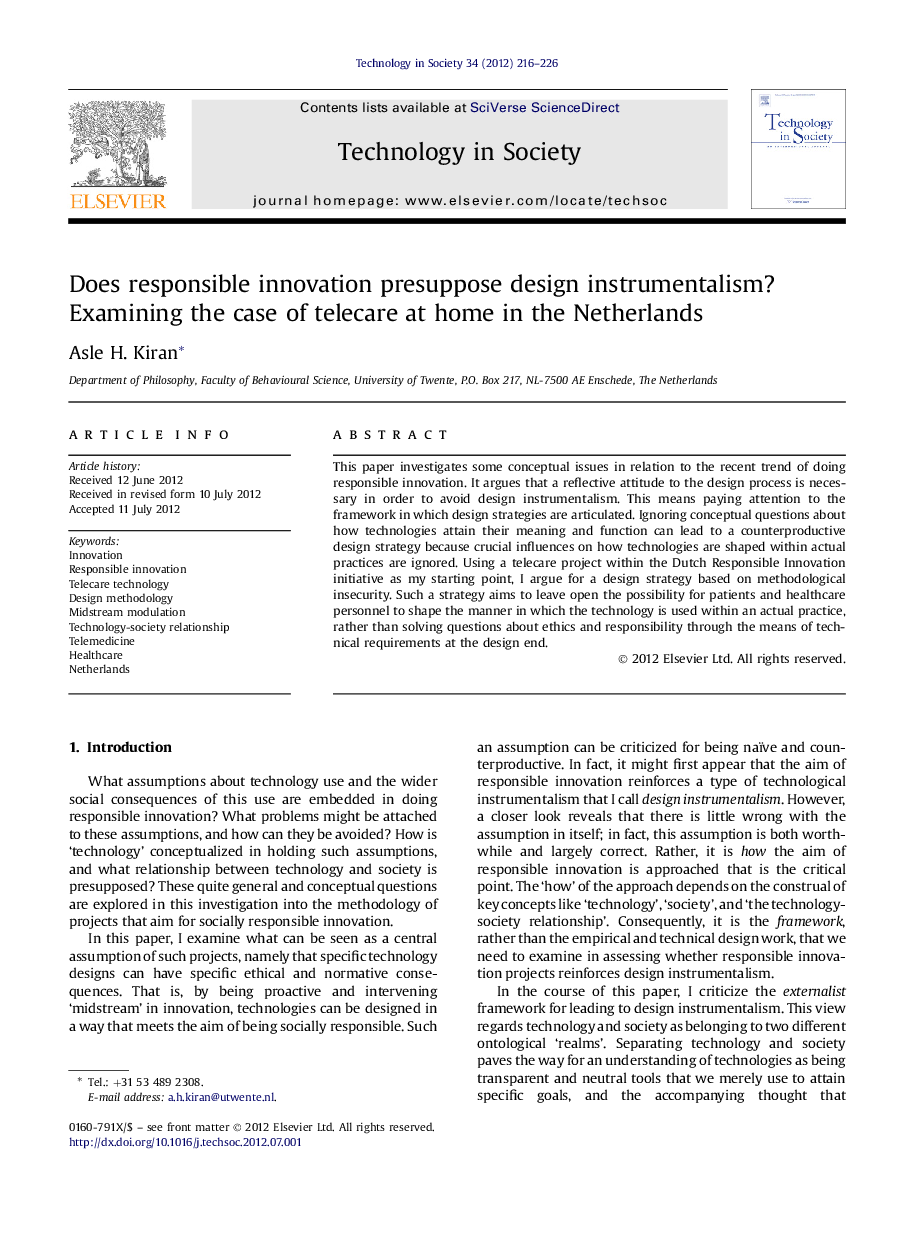| Article ID | Journal | Published Year | Pages | File Type |
|---|---|---|---|---|
| 375317 | Technology in Society | 2012 | 11 Pages |
This paper investigates some conceptual issues in relation to the recent trend of doing responsible innovation. It argues that a reflective attitude to the design process is necessary in order to avoid design instrumentalism. This means paying attention to the framework in which design strategies are articulated. Ignoring conceptual questions about how technologies attain their meaning and function can lead to a counterproductive design strategy because crucial influences on how technologies are shaped within actual practices are ignored. Using a telecare project within the Dutch Responsible Innovation initiative as my starting point, I argue for a design strategy based on methodological insecurity. Such a strategy aims to leave open the possibility for patients and healthcare personnel to shape the manner in which the technology is used within an actual practice, rather than solving questions about ethics and responsibility through the means of technical requirements at the design end.
► Externalist conceptions of the technology–society relation lead to design instrumentalism. ► Too rigidly designed technical systems will not be implemented into the designated practices. ► ‘Responsible innovation’ should not be based on translating ethical considerations into technical requirements. ► An analysis of technical mediation favors methodological insecurity as design strategy for ‘responsible innovation’.
